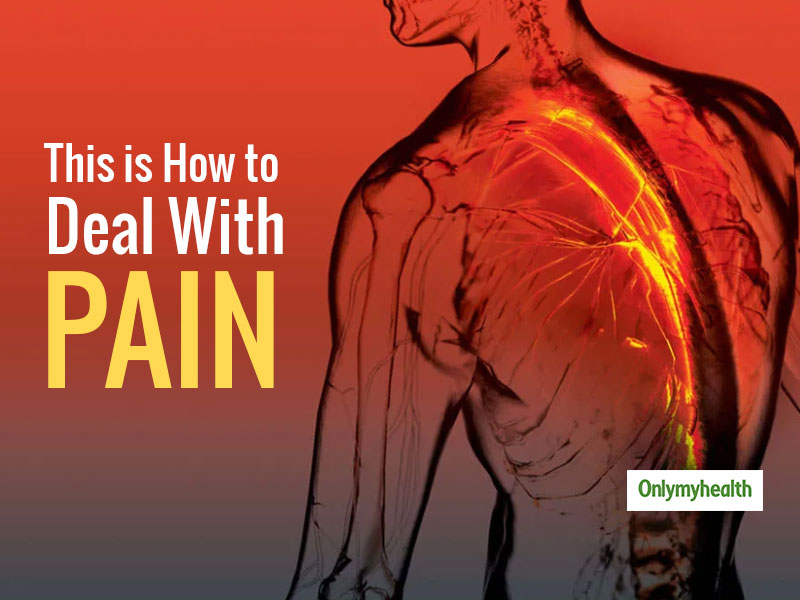
Pain is an uncomfortable sensation caused in the body. It occurs as people get older, and individuals respond to pain differently. Pain can range from mild to severe and can feel like a sharp stabbing or dull ache. It can also be described as throbbing, singing, sore, and pinching. The pain isn’t constant and can start and stop frequently, or appear only under some conditions. There are two types of pain related to a specific injury or issue
Table of Content:-

- Acute pain - This is usually short-lived and a normal response to an injury
- Chronic pain - This continues for a long time and exceeds the expected time for healing. It may last for months or years if the person has a chronic condition
- Pain can cause cramps, headache, stomach ache, bone fracture, muscle strain, and many illnesses such as flu, reproductive issues.
Also Read: Skull Breaker Challenge Video: Know-How This TikTok's Viral Can Lead To Serious Injuries
Pain Management Without Medicines
There are many treatments available for pain. Few therapies can be more effective. Some of them include:
- Ice packs: Use it immediately after an injury to reduce swelling. Heat packs are preferred for relieving chronic muscle or joint injuries
- Physical therapies: They are an essential part of any pain management. Walking, stretching, strengthening or aerobics exercise help in reducing pain and can improve your mood. Proper exercise builds up your tolerance and reduces your pain.

- Cognitive-behavioural therapy: This allows individuals to learn and have a better understanding of what the pain is from. It can help you learn to change the way you think, behave and feel about the pain.
- Massage: This is suitable for soft tissue injuries and should be avoided if the pain is in the joints. It is not recommended as a long-term therapy if the pain isn’t eliminated.
- Electrical stimulations: Transcutaneous electrical stimuli (TENS) is a portable device that is attached to your skin. The electric currents pass through the skin via electrodes, relieving the pain from the body. It is safe and can be used in mild pain to control it. Another is Spinal cord stimulation(SCS) that uses a metal wire placed near your spinal cord to help control pain. They are placed during surgery.
- Relaxation techniques: Meditation and yoga can be helpful.

Also Read: This Woman Played The Violin During Brain Surgery To Preserve Brain Functions, Know How Music Helps
Medications
Several medicines are available such as opioid, narcotic and other pain medicine. It is advisable to consult a doctor for a specific prescription of the drug. They can cure pain by stopping chemicals called prostaglandins that cause swelling, inflammation and make nerve endings sensitive, which can lead to pain. Some of the medicines can also cure pain such as
- NSAIDs: Ibuprofen can help decrease swelling, pain and fever. However, only take over the counter medication on reference of the doctor.
- Acetaminophen: It reduces pain and fever. Check how much you should take and when. Follow the instructions and read the labels of medicines you are using, or ask your doctor or pharmacist. Intake without prescription can cause liver damage.

- Opioid pain medicine: morphine, oxycodone which is usually for cancer pain as they change pain messages in the brains which is why these medicines can be addictive
- Paracetamol: Recommended as the first medicine to relieve short-term pain
- Antidepressants: They help in decreasing or preventing the symptoms of depression or anxiety and can treat nerve pain.
- Anticonvulsants: To control seizure and decrease chronic pain
To be on the safer side, discuss these with your doctor or other health professionals so that the pain is relieved and the prescribed medications are effective. People with chronic pain may experience recurrence and remission of symptoms (pain and other associated symptoms). For instance, a person with arthritis may have flare-up of pain and swelling of joint, which may decrease with treatment or if you have migraine, you may experience repeated attacks of headache, which gets relieved with medications, though it may occur again.
Read more articles on Miscellaneous
How we keep this article up to date:
We work with experts and keep a close eye on the latest in health and wellness. Whenever there is a new research or helpful information, we update our articles with accurate and useful advice.
Current Version